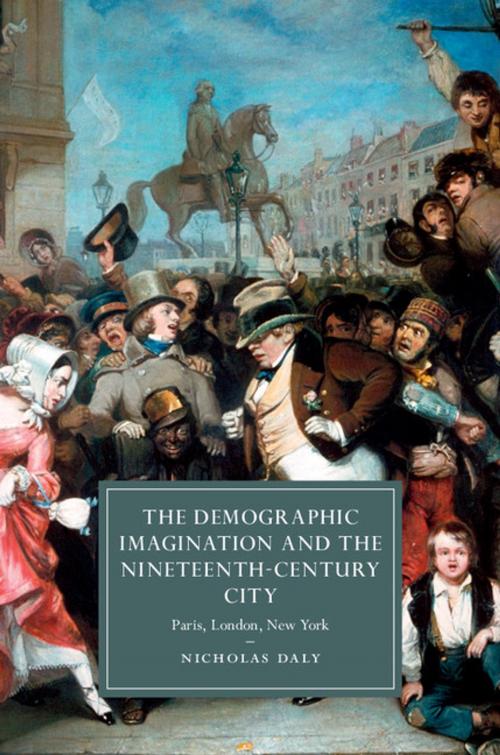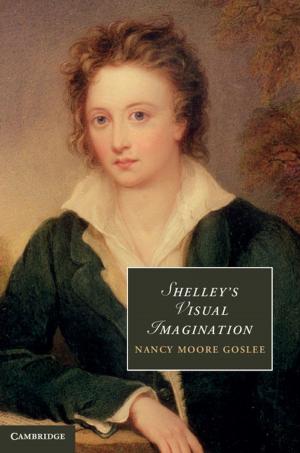The Demographic Imagination and the Nineteenth-Century City
Paris, London, New York
Fiction & Literature, Literary Theory & Criticism, British, Nonfiction, History| Author: | Nicholas Daly | ISBN: | 9781316289884 |
| Publisher: | Cambridge University Press | Publication: | March 30, 2015 |
| Imprint: | Cambridge University Press | Language: | English |
| Author: | Nicholas Daly |
| ISBN: | 9781316289884 |
| Publisher: | Cambridge University Press |
| Publication: | March 30, 2015 |
| Imprint: | Cambridge University Press |
| Language: | English |
In this provocative book, Nicholas Daly tracks the cultural effects of the population explosion of the nineteenth century, the 'demographic transition' to the modern world. As the crowded cities of Paris, London and New York went through similar transformations, a set of shared narratives and images of urban life circulated among them, including fantasies of urban catastrophe, crime dramas, and tales of haunted public transport, refracting the hell that is other people. In the visual arts, sentimental genre pictures appeared that condensed the urban masses into a handful of vulnerable figures: newsboys and flower-girls. At the end of the century, proto-ecological stories emerge about the sprawling city as itself a destroyer. This lively study excavates some of the origins of our own international popular culture, from noir visions of the city as a locus of crime, to utopian images of energy and community.
In this provocative book, Nicholas Daly tracks the cultural effects of the population explosion of the nineteenth century, the 'demographic transition' to the modern world. As the crowded cities of Paris, London and New York went through similar transformations, a set of shared narratives and images of urban life circulated among them, including fantasies of urban catastrophe, crime dramas, and tales of haunted public transport, refracting the hell that is other people. In the visual arts, sentimental genre pictures appeared that condensed the urban masses into a handful of vulnerable figures: newsboys and flower-girls. At the end of the century, proto-ecological stories emerge about the sprawling city as itself a destroyer. This lively study excavates some of the origins of our own international popular culture, from noir visions of the city as a locus of crime, to utopian images of energy and community.















